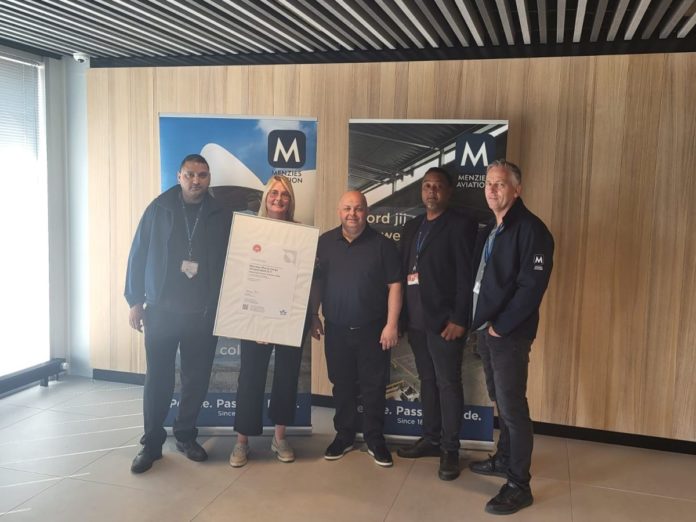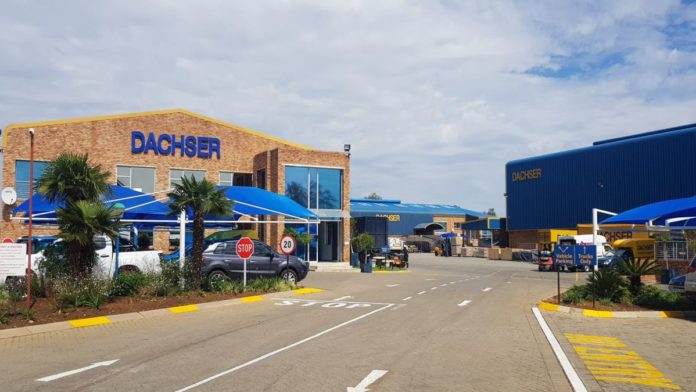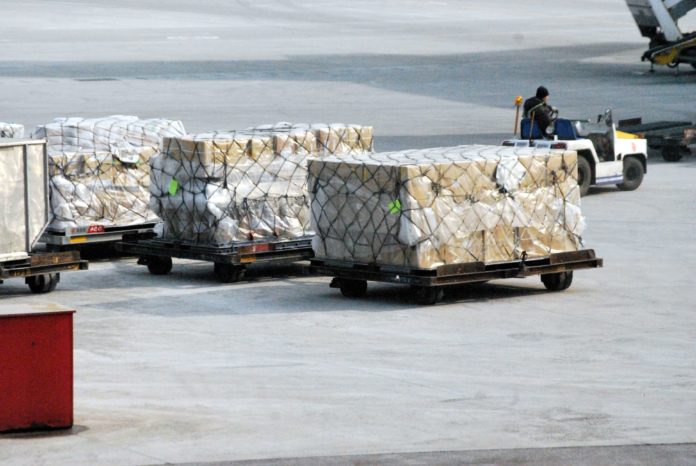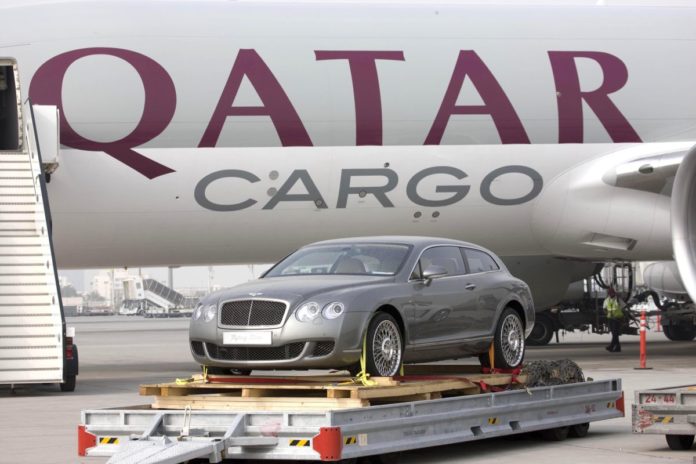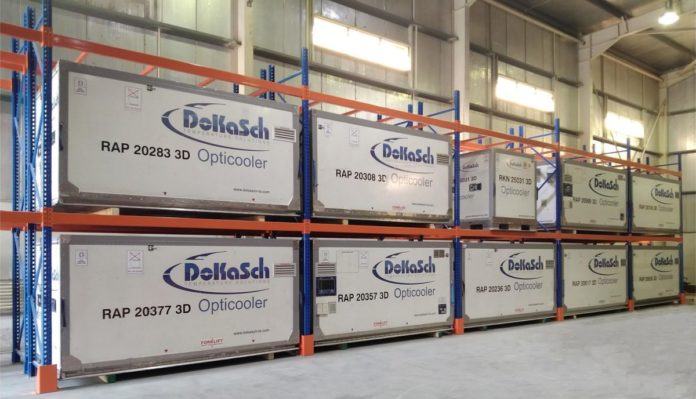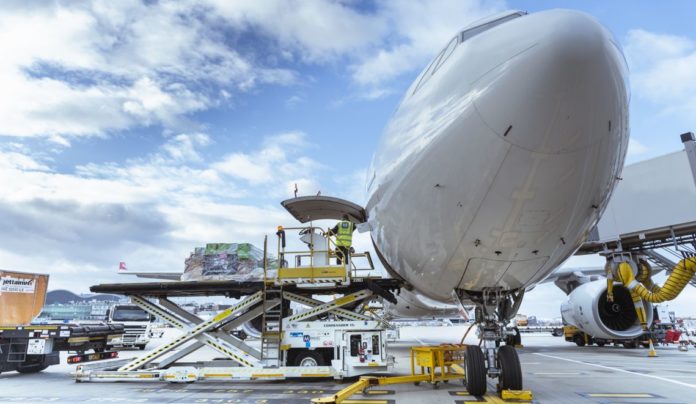Menzies Aviation has gained IATA CEIV Pharma accreditation for its cargo facility at Amsterdam Airport Schiphol. The team of 250 employees at the 37,000sq m warehouse handles 300,000 tonnes of cargo each year. Prior to certification, Menzies implemented IT upgrades to ensure all relevant pharmaceutical checklists were digitized and correct handling was guaranteed. It is the fifth Menzies facility to be awarded the accreditation, joining London Heathrow , Sydney, Melbourne and Budapest.
Dachser takes sole charge in South Africa
Dachser has acquired the remaining 30% of shares in its Dachser South Africa arm and is now the sole owner of the Johannesburg-based country organization. The German-owned logistics provider entered a joint venture with the family-owned company Jonen Freight in 2011 and has now acquired the remaining shares from the founding Duve family. Detlev Duve, son of the company’s founder, will continue to lead Dachser South Africa as managing director.
The company offers air and sea freight transport as well as contract logistics services at three warehouse locations, along with road transport for industries such as chemicals, agriculture and mining.
Back to reality for airfreight in 2024?
The air freight market could see a return of “classic seasonality” in 2024, says Oslo-based analyst Xeneta in its 2024 Outlook.
Chief airfreight officer, Niall van de Wouw, said the coming year “could be an opportunity for shippers to catch their breath after the volatility of the past few years. The rapid rate decline which started earlier this year has calmed down in recent months. It seems (that) the market has a new baseline, from which I expect classic seasonality patterns to emerge.”
Airfreight costs skyrocketed during Covid-19 before plummeting again during 2023, although they are still 32% up on pre-pandemic levels.
As with all rollercoasters, a wobbly feeling will remain for a good while after the ride has stopped and air freight continues to be a hugely challenging market, adds Xeneta. It remains as important as ever to understand supply chain data at both a global and regional level.
The Xeneta Air Freight Outlook 2024 highlights muted consumer spending as a key factor for the year ahead. Demand for air freight in 2023 remains down by -8% compared to the pre-pandemic figure and is only predicted to grow by 1-2% in 2024. At the same time, supply is expected grow by 2-4% in 2024.
Van de Wouw said: “The key indicators are not great from a demand point of view. It’s muted and there’s a lot of uncertainty in the world. People and companies are a bit more conscious how they are spending their money and we will likely not see demand pick up in any meaningful way in 2024.
“Yes, we will see a return of classic seasonality, but it will be muted seasonality.”
Xeneta data reveals an increasing trend for longer term contracts, but Van de Wouw believes this presents a potentially perilous situation for freight forwarders in 2024.
He said: “There is fierce competition and I understand why freight forwarders want 12 months contracts to secure volumes and shippers want to lock in for a longer period to reduce their workload.
“The problem is freight forwarders are selling long term contracts but buying the majority of volume from carriers on the short term spot market. If the rates go up, there is a serious issue.
“We saw it recently out of Vietnam where 70% of volume is bought on the spot market. Rates suddenly went crazy prior to Golden Week and freight forwarders told shippers they could not honor the contracted service.
“This could happen in any market and is a real risk for next year unless freight forwarders and airlines can find common ground on long term rates.”
The Xeneta Outlook 2024 also predicts that the continued recovery of capacity will put downward pressure on rates, along with environmental sustainability and improving schedule reliability in ocean freight shipping.
Has the rollercoaster really come to a halt or are there more twists and turns yet to come?
Van de Wouw said: “At Xeneta I have learned how incredibly important it is for the air freight industry to look towards the ocean.”
With 97% of global containerized goods transported by sea: “Given the volumes involved, if the ocean industry mess things up, even to a small degree, then there is always money to be made in the air.
“Reliability in ocean is improving, but it only takes one black swan event for the situation to change and rates to increase rapidly.
“No one has a crystal ball, but you only have to look at the drought in the Panama Canal, threat of volcanic eruptions in Iceland and conflict in the Middle East to understand how delicate and sensitive to world events the air freight industry is.
“If we do get a black swan event in 2024 then strap yourselves in for another ride on the rollercoaster.”
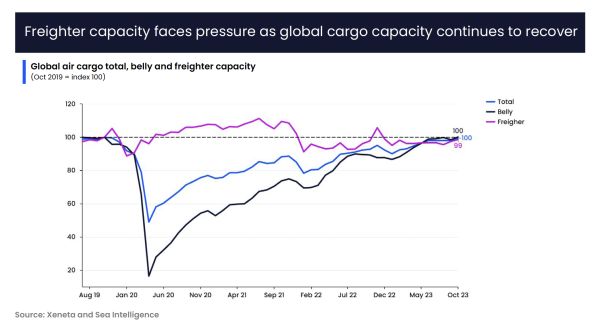
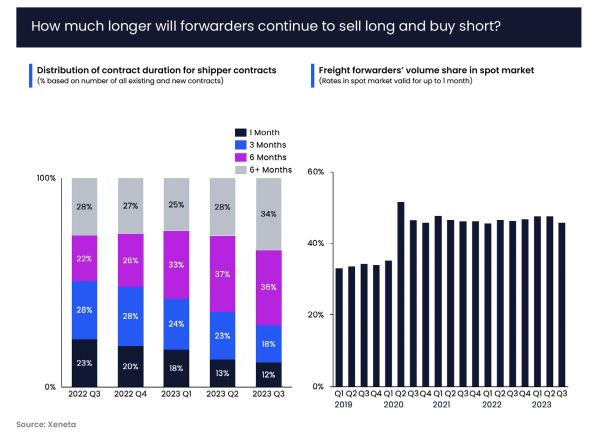
Cainiao to create dedicated Liege hub
Saudia Cargo, Cainiao, and Worldwide Flight Services are to create a dedicated area at the Cainiao Liege eHub in Belgium from 1 March 2024 as part of a reinforced strategic collaboration. The move is in response to increasing demand for cross-border e-commerce, particularly in the Middle East and European markets. A WFS/SATS contract to handle over 50,000 tonnes annually on flights between Liege and Riyadh has been extended.
Earlier this year, Cainiao unveiled its international express shipping service, Global 5-Day Delivery, in collaboration with AliExpress, now available in the UK, Spain, the Netherlands, Belgium, and South Korea.
John Batten, chief executive, Europe, Middle East, Africa and Asia at WFS (a member of the SATS Group) commented:“E-commerce is extremely important to WFS/SATS, our customers, our industry, and, of course, consumers, but up to now, it has been processed within a traditional air cargo handling environment.
With the growth projections for e-commerce, the industry response must be more dynamic and tailored, and this is what WFS/SATS aims to deliver in Liege working alongside Saudia Cargo and Cainiao. This three-party collaboration leverages operational excellence skills and requirements from the airline, cargo handler, and e-commerce logistics perspectives, and will exemplify our commitment to innovation, speed, and real-time information for the future of the e-commerce logistics ecosystem.”
Saudia Cargo chief executive, Teddy Zebitz, said:”With high frequency flights on our Hong Kong, to Liege Via Riyadh route, we have a significant capacity exclusively dedicated to Cainiao. Utilizing a meticulous process involving pre-built ULDs, we facilitate an uninterrupted supply chain, supporting Cainiao in achieving their key performance indicators.”
Vice president of Cainiao Group, Eric Xu, stated: “Through continuously equipping our Liege eHub with cutting-edge technology solutions, we managed to boost the efficiency of logistics operations while improving customer experience through greater transparency and traceability. We are confident that this win-win collaboration will further reinforce Cainiao’s position as the world’s leading cross-border e-commerce logistics provider by offering the valued customers of us three companies with enhanced experience.”
Cars take to the air with Qatar Cargo
Qatar Airways Cargo has launched a ‘Drive’ automobile transport service. Vehicles such as vintage cars or premium models can be moved on freighter or passenger flights to more than 160 belly-hold and over 70 freighter destinations as well as on non-scheduled services.
The airline’s specialist teams from Special Loads, Dangerous Goods, Operations, Charters and its loadmasters collaborate to offer solutions in particular ensuring safety measures, and that vehicles are tied down and secured properly before flight.
In 2022, Qatar Airways Cargo transported over 1400 vehicles.
Tech firm Pledge to highlight logistics emissions at COP28
Climate tech firm Pledge and non-profit group Smart Freight Center are to host a round at the COP28 summit in Dubai on 6 December to bring together carriers, forwarders, and shippers to share best practices and exchange ideas to meet net-zero targets.
It will also highlight innovative solutions, technologies, and methodologies, such as Smart Freight Centre’s GLEC Framework and ISO Standard 14083, which can help the industry to meet net-zero targets.
Smart Freight Centre focuses on reducing greenhouse gas emissions from freight transportation and is promoting accredited emissions reporting with its GLEC Framework and ISO Standard 14083.
Pledge co-founder and chief executive David de Picciotto said: “The OECD has predicted that global logistics emissions are set to increase 42% by 2050 – the same year the Paris Agreement has tasked the EU to achieve net zero carbon. If we’re going to meet this challenging goal, the industry needs to come together and collaborate.”
DoKaSch opens in Dubai
DoKaSch Temperature Solutions has opened a depot in United Arab Emirates, close to Dubai-World Central Airport. The UAE’s pharma market expected to reach a value of US$4.7 billion and the new depot will also be a gateway to the Indian subcontinent, a key production region.
New study boosts cold chain efficiency
Tower Cold Chain and Cardiff Business School have constructed a mathematical ‘model’ showing how temperature-controlled containers might flow around the global network of existing or new hubs. It is part of a UK government grant supported study that enlisted the expertise of scholars in the School’s Logistics and Operations Management section to test the feasibility of a decision support system for Tower’s global distribution. Tower said it could help to minimize empty movements and over-stocking and reduce operational costs.
Rotate to offer air capacity data for free
Software and data specialist Rotate has launched a real-time capacity and market intelligence tool for the air cargo industry. It contains live updated flight data from thousands of airlines, more than 9,000 airports and over 200 aircraft types and is available free-of-charge to air cargo companies.
Co-founder Gert-Jan Jansen said the Rotate Live Capacity tool supports functions including network design, business development, benchmarking, carrier management, pricing, and market trend analysis.
Fellow co-founder, Ryan Keyrouse, added: “Our belief is that the real value is not the market data itself, but rather in the interpretation and the analysis of this data, which drives actions and better decisions.”
The Capacity Live tool will be enhanced with premium features over time such as capacity forecasts, alerts on capacity changes, capacity overviews and a competitive position analyser.
Menzies secures Heathrow cargo contracts
Menzies Aviation has renewed and secured several new key cargo contracts with airlines at London’s Heathrow Airport including Thai Airways Cargo, Middle East Airlines, Royal Air Maroc Cargo, Royal Jordanian Airlines, Scandinavian Airlines Cargo and Tarom.
Among the new contracts, Menzies is set to deliver cargo handling and airside trucking services for Thai Airways, overseeing the transportation of more than 16,000 tonnes of vegetables and fresh fish on 14 turns per week.
Royal Air Maroc Cargo has appointed Menzies to manage its cargo handling at Heathrow, managing seven turns per week.
Royal Jordanian Airlines, has added cargo handling and airside trucking to its existing passenger and ramp handling agreement. The extended contract will include 14 additional turns per week, with more than 6,000 cargo tonnes anticipated each year.
Menzies Aviation has also locked in a further five-years with Lebanon’s Middle East Airlines, to provide air cargo handling services and airside trucking for more than 14 turns per weeks, including more than 1,700 tonnes of fresh vegetables.
Menzies will also continue providing cargo handling services for SAS Cargo, over 35 turns per week and will also continue serving long standing cargo customer, Tarom of Romania, with seven turns per week.
Vice president cargo – Europe, Karl Aldwinckle, said: “It is fantastic to see such positive momentum, with a series of wins and renewals for the cargo team at London Heathrow, helping to expand our cargo footprint in Europe. We have an ambitious cargo expansion strategy and are proud to have built strong relationships with our customers who recognise our service driven approach. We’re excited to continue building on these relationships and expand our reach in Europe and beyond.”







